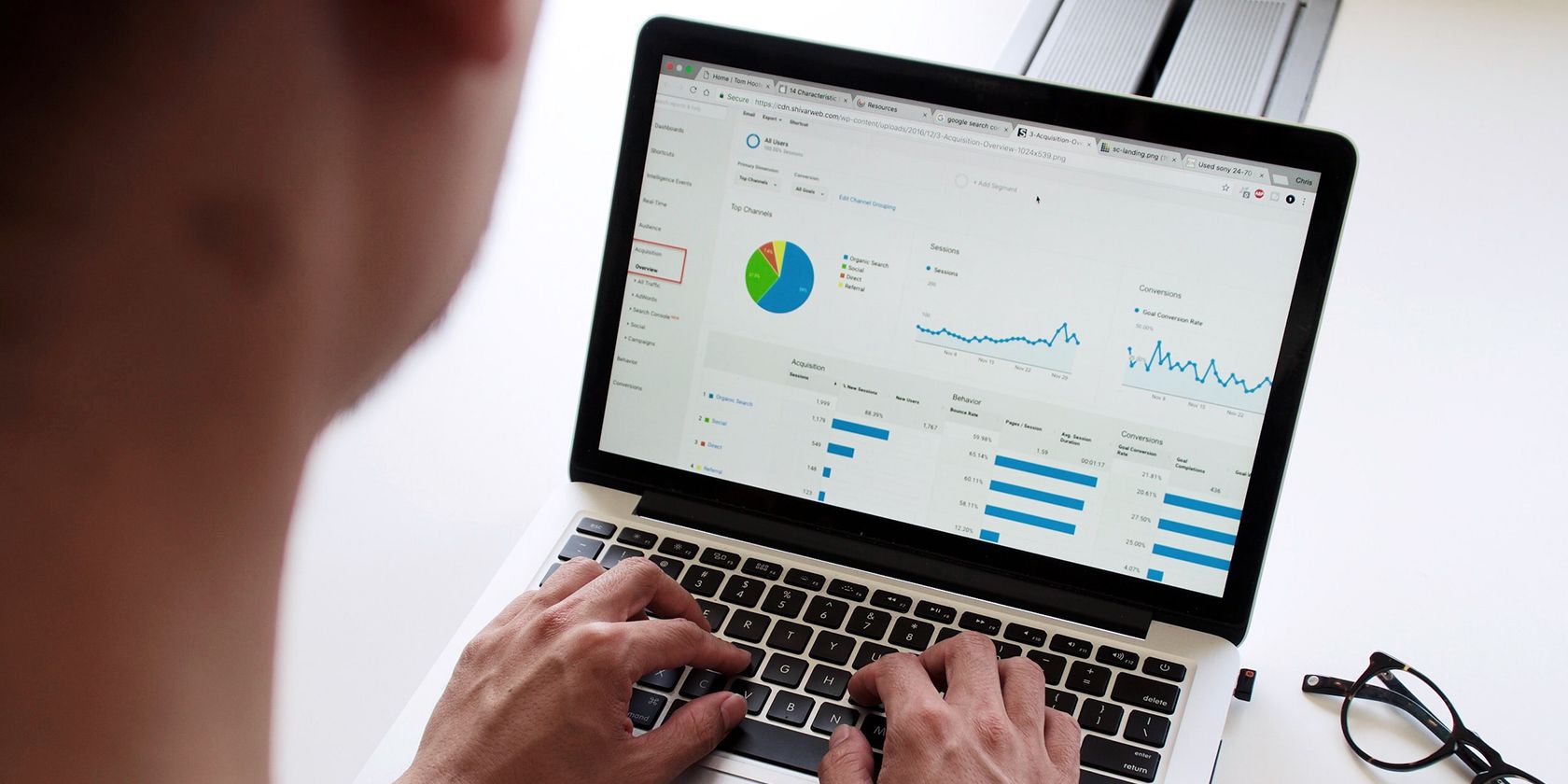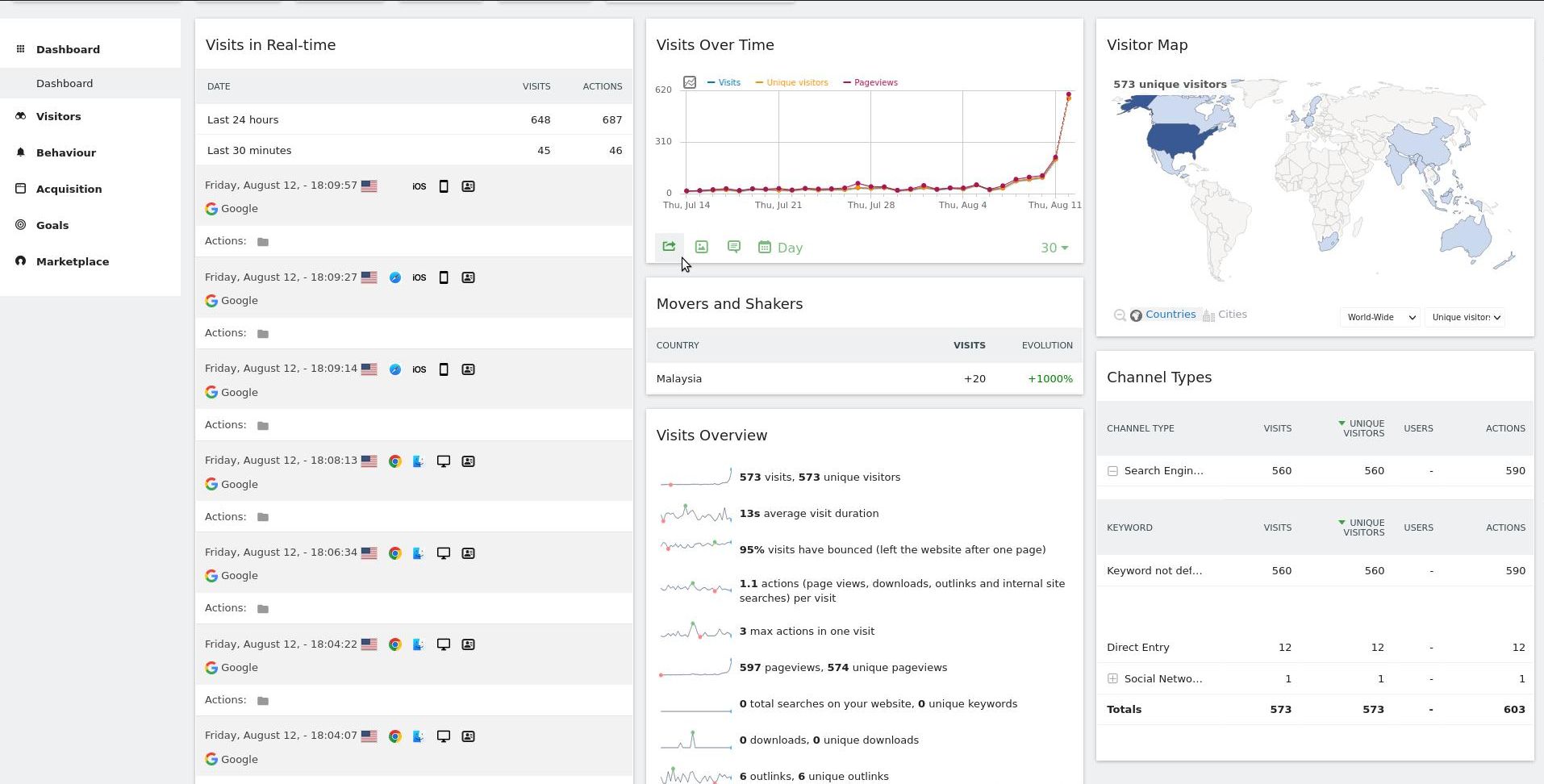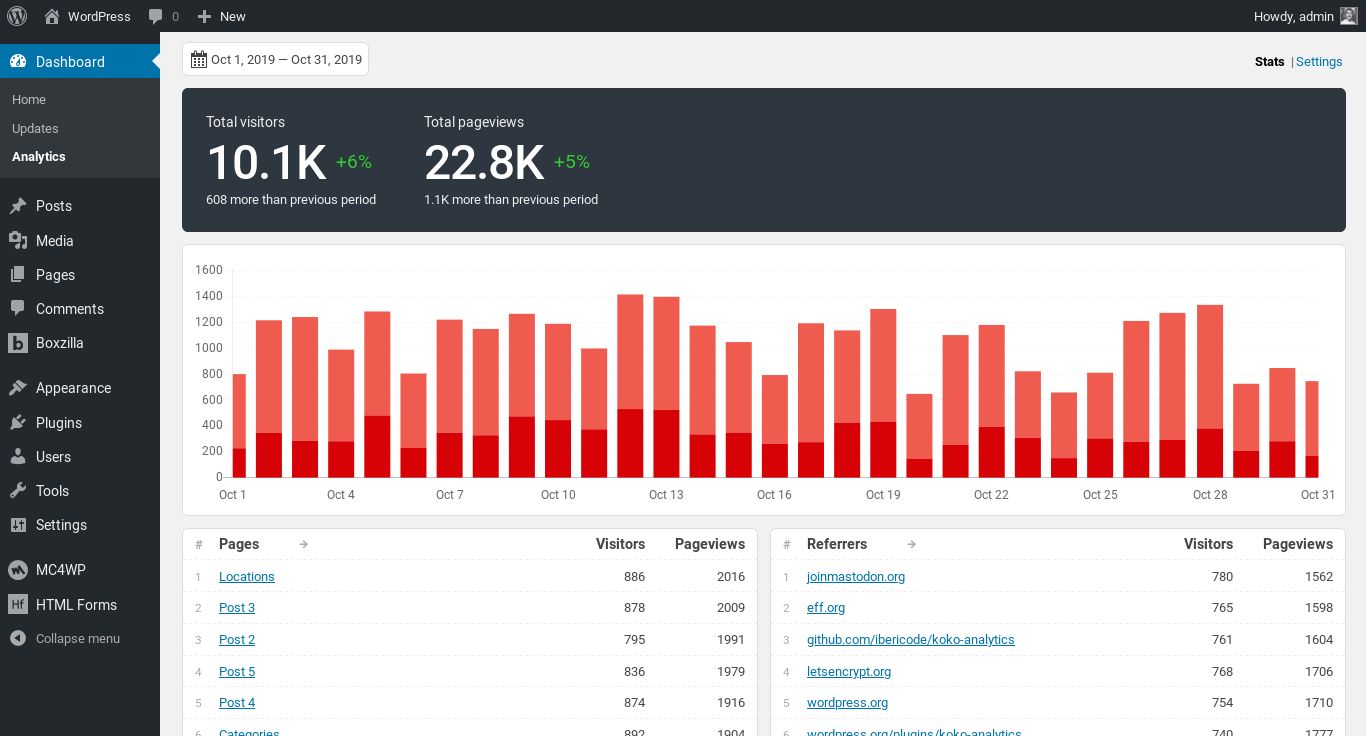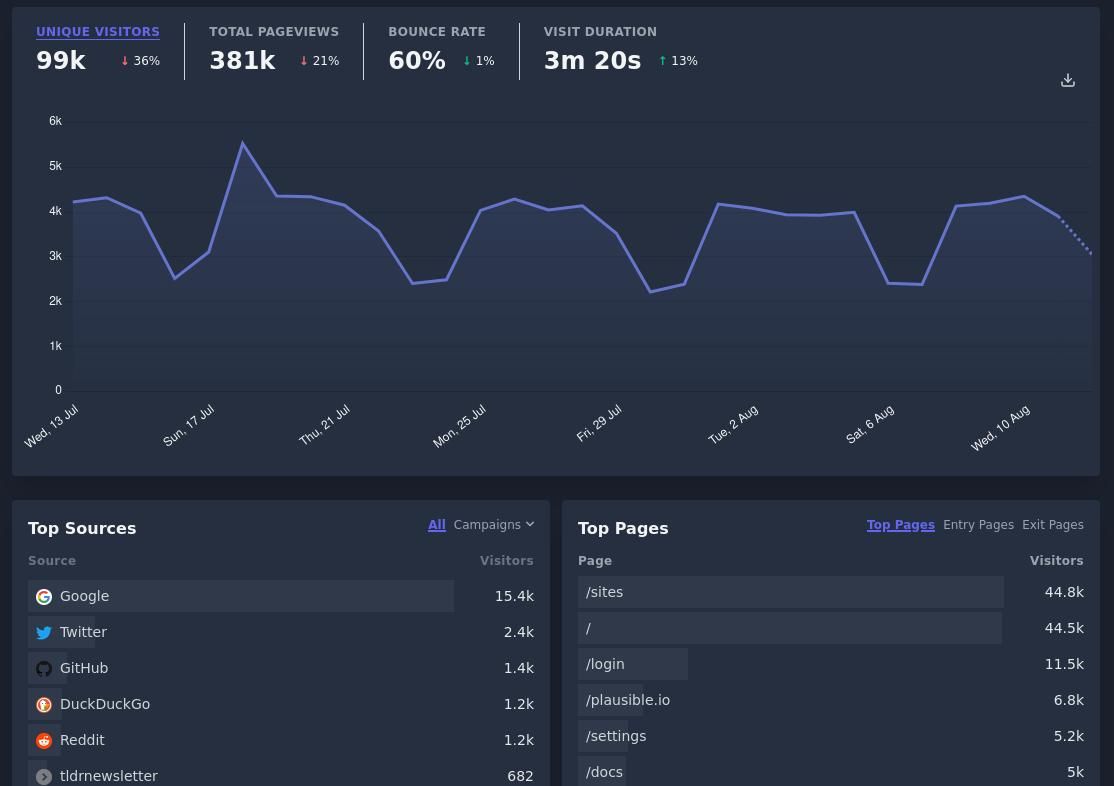The internet economy exists in large part due to advertising. This involves tracking website visitors between sites and building detailed profiles on them - the better to sell them stuff they may not want or need.
You can help to keep your users' data private with privacy-friendly Google Analytics alternative website analytics tools. Here, we'll take a look at three.
Why Do Website Owners Use Analytics at All?
Analytics help website owners to understand what visitors want to read on their site, how they arrive there, which authors and editors perform well, and how users move from one page to another. This is valuable information in that it helps website owners create better content which visitors will want to consume.
Of course, analytics are also used to provide valuable data insights on customers. These can be used for advertising by the website directly, or sold to other advertisers. This isn't always the case, so analytics aren't always a negative. But, they're not always very privacy focused.
Why You Should Avoid Google Analytics
Google Analytics provides all of the benefits described above, but it also gathers large amounts of personal information from website users. The service then collates it together from every website a user visits on which Google Analytics is deployed.
This gives advertising and tracking companies a unique insight into a user's likes, dislikes, sexuality, health, and all manner of metrics they would rather be kept private.
Even with ad blockers or other tracker-disabling extensions enabled, Google Analytics can collect details such as IP address and user agent string every time you visit a site which uses that is part of the GA network. That information alone is usually enough to tie web activity to an individual.
There are debates raging over whether such invasive tracking is legal, and several European governments have either banned or in the process of banning its use–in part due to the transmission of data to the US.
Despite the California Consumer Privacy Act (CCPA) and Europe's General Data Protection Regulation (GDPR) which requires companies to obtain consent for tracking users, many websites ignore this as it can be difficult to implement, especially with niche content management systems.
Website visitors are also growing increasingly nervous about tracking companies knowing everything they do on the web and in the real world, and some actively avoid sites which use Google Analytics.
3 Privacy-Focused Alternatives to Google Analytics
Google Analytics became the dominant analytics package because it is easy to deploy, free for websites to use, and reveals a staggering amount of data. A privacy-friendly analytics package should give website owners the data they need to improve their website without passing on that information to any third parties.
The software should also be easy to set up. Whether you consider these features worth paying for is up to you. Privacy-friendly analytics do exist, and here are some of the best:
1. Matomo
Matomo Analytics was formerly known as Piwik and was started in 2007 as a free open-source alternative to Google Analytics with an emphasis on user privacy. Among its features, Matomo shows real-time visitors and displays this information in text and graph form, along with a map of the world showing where visitor are coming from, and an overview of behavior on the site.
Matomo boasts GDPR compliance, 100% data ownership, reliability, and security.
Although Matomo does offer paid cloud hosting for your analytics, it's free to host yourself, very easy to set up and run on your own hardware. It runs very well even on old or low powered hardware and can handle huge numbers of visitors with no loss of stability - even on a Raspberry Pi.
2. Koko Analytics
If your website is WordPress based, Koko analytics is incredibly easy to install. Simply click "Add new" in the Plugins section, and search for "Koko Analytics".
User privacy is Koko Analytics' number one concern and in settings, you will find an option to perform log-based analytics. This is less accurate than cookie-based analytics and does not do a perfect job at detecting returning visitors, but provides extra privacy for your users should you choose to opt for it.
Data is displayed in easy to understand graphics, and when Koko is able to detect a visitor's origin or the route through which they land on your site, that will be displayed, too.
No personal information ever gets tracked, and Koko is fully GDPR-compliant. Data can be set to automatically delete after a defined number of days.
3. Plausible Analytics
Plausible analytics is a late arrival in the world of privacy-friendly analytics with development starting in late 2018, and the first release in April 2019. The hosted version of Plausible charges depending on how many visits your site gets, with the lowest tier (up to 10,000 monthly page views) costing $9 per month.
Plausible is developed and hosted in the EU, and boasts compliance with GDPR and CCPA, as well as the Privacy and Electronic Communications Regulation. With the analytics tool, there are no persistent identifiers, no personal data is collected, and cookies are not used.
Useful features for web admins include the ability to create goals, track events, and conversions - as well as sharing your dashboard with viewers who aren't logged in.
In addition to paid hosting, you are also free to host plausible analytics on your own hardware - whether at your business premises or at home. There are no costs to download it and no costs for using it as you wish.
There Are Great Privacy-Focused Alternatives to Google Analytics
Getting the information you need about your visitors doesn't necessarily mean selling their data to advertising companies. We've shown you three fantastic alternatives which can yield detailed data while preserving the privacy of your users. Best of all, they don't need to rely on external infrastructure; you can run them yourself on your own servers.
There are other privacy-focused analytics tools available, if you have a requirement that none of these options meet. It might also be worth considering a separate tool to keep an eye on your website's traffic.




